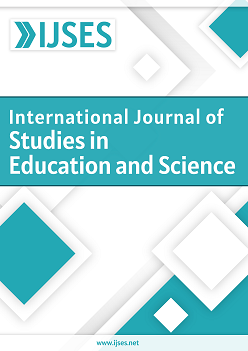Performing 1-1 Interventions to Address Mathematics Anxiety – An Intervention Case Study of 3 Brazilian Women Who Believed They Were Stupid in Mathematics
DOI:
https://doi.org/10.46328/ijses.104Keywords:
Mathematics anxiety, Mathematical resilience, Growth zone model, Mathematics education, PsychoeducationAbstract
Mathematics Anxiety is well-researched, but solutions are few. This study shows the potential to provide an affordable solution, one that could ultimately be rolled out across the country and the world. The 1:1 interventions involve inviting the participants to tell their math story and then introducing the Mathematical Resilience Framework and reframing adverse prior experiences as unrelated to intrinsic ability. The framework includes three tools: the hand model of the brain, the growth zone model, and the relaxation response. The intervention participants were Brazilian volunteers living in England from the local and virtual communities. The levels of Mathematics Anxiety were measured before the intervention using the Betz (1978) scale, and narrative records were made. The qualitative data were analyzed using deductive thematic analysis (Braun & Clarke, 2006) through the lens of the Mathematical Resilience Framework. The data indicated the positive impact of performing this kind of intervention.References
Alves, K.L., Pará, T., Johnston-Wilder, S., & Baker, J. (2024). Performing 1-1 interventions to address mathematics anxiety – An intervention case study of 3 Brazilian women who believed they were stupid in mathematics. International Journal of Studies in Education and Science (IJSES), 5(4), 354-373. https://doi.org/10.46328/ijses.104
Downloads
Published
Issue
Section
License
Articles may be used for research, teaching, and private study purposes. Authors alone are responsible for the contents of their articles. The journal owns the copyright of the articles. The publisher shall not be liable for any loss, actions, claims, proceedings, demand, or costs or damages whatsoever or howsoever caused arising directly or indirectly in connection with or arising out of the use of the research material.
The author(s) of a manuscript agree that if the manuscript is accepted for publication in the International Journal of Studies in Education and Science (IJSES), the published article will be copyrighted using a Creative Commons “Attribution 4.0 International” license. This license allows others to freely copy, distribute, and display the copyrighted work, and derivative works based upon it, under certain specified conditions.
Authors are responsible for obtaining written permission to include any images or artwork for which they do not hold copyright in their articles, or to adapt any such images or artwork for inclusion in their articles. The copyright holder must be made explicitly aware that the image(s) or artwork will be made freely available online as part of the article under a Creative Commons “Attribution 4.0 International” license.

This work is licensed under a Creative Commons Attribution-NonCommercial-ShareAlike 4.0 International License.





